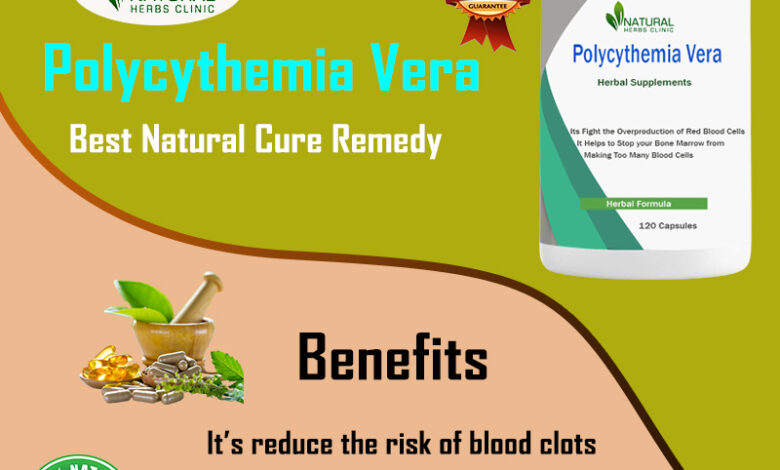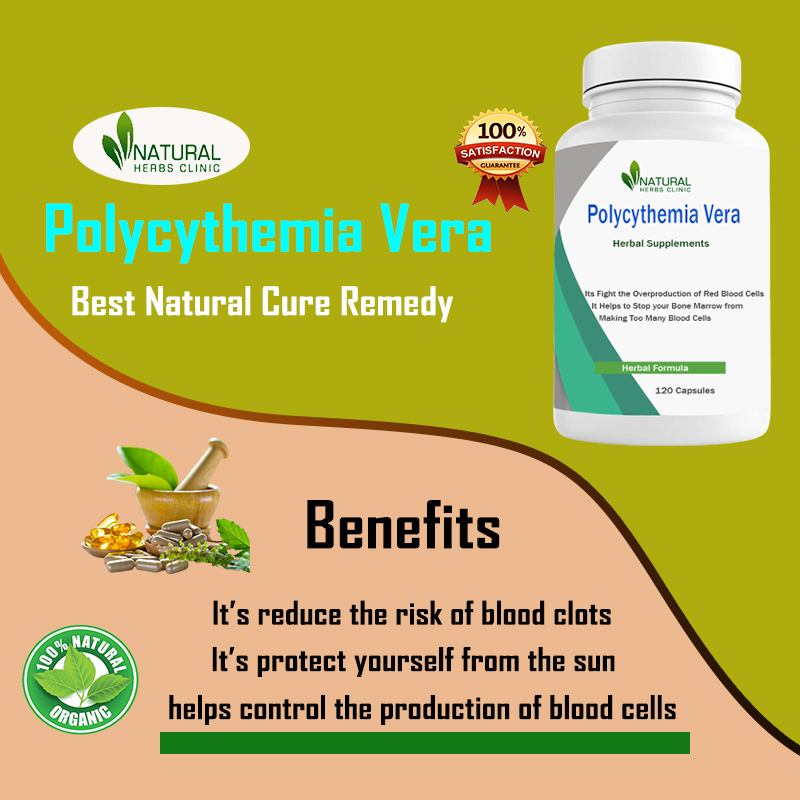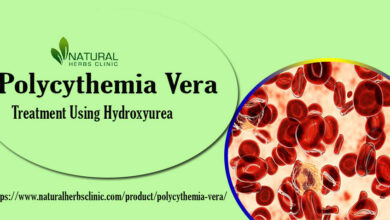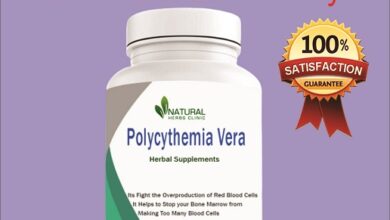Polycythemia Vera Diet and Lifestyle Tips: Managing Your Health

Discover effective Polycythemia Vera Diet and Lifestyle Tips to manage it, Learn how to improve your well-being and reduce symptoms naturally.
Introduction
Polycythemia Vera (PV) is a rare chronic blood disorder characterized by the overproduction of red blood cells in the bone marrow. While medical treatments are available to manage the condition, adopting a healthy diet and lifestyle can significantly contribute to better overall well-being. In this article, we will explore some practical tips to help you manage Polycythemia Vera through dietary choices and lifestyle modifications.
Polycythemia Vera Causes and Symptoms
Polycythemia Vera (PV) is a rare blood disorder that primarily affects the bone marrow, leading to the excessive production of red blood cells. This condition is characterized by an abnormal increase in the number of red blood cells, white blood cells, and platelets in the bloodstream. Polycythemia Vera is considered a chronic condition and falls under the category of myeloproliferative neoplasms (MPNs).
Causes of Polycythemia Vera:
The exact cause of Polycythemia Vera is not yet fully understood. However, scientists believe that the condition originates from a mutation in the JAK2 (Janus kinase 2) gene, which is responsible for regulating the production of blood cells. This acquired gene mutation is known as JAK2 V617F and is found in almost 95% of Polycythemia Vera cases.
While the exact cause remains unknown, there are several risk factors associated with the development of Polycythemia Vera. These risk factors include:
- Age: Polycythemia Vera commonly affects individuals above the age of 60, although it can occur at any age.
- Gender: Men are slightly more prone to developing Polycythemia Vera compared to women.
- Genetic Factors: There is evidence suggesting a genetic predisposition to Polycythemia Vera, as it can sometimes run in families.
Symptoms of Polycythemia Vera:
The signs and symptoms of Polycythemia Vera can vary among individuals, and some people may experience no symptoms at all. However, common symptoms associated with this condition include:
- Excessive Production of Blood Cells: Polycythemia Vera leads to an increased number of red blood cells, white blood cells, and platelets in the bloodstream. This can cause the blood to become thicker and more viscous, leading to complications.
- Headaches and Dizziness: Due to the increased thickness of the blood, individuals with Polycythemia Vera may experience frequent headaches and dizziness. These symptoms are a result of reduced blood flow to the brain.
- Fatigue and Weakness: The excess number of blood cells can interfere with the normal oxygen supply to tissues and organs, leading to fatigue, weakness, and a general feeling of tiredness.
- Itchy Skin and Redness: Polycythemia Vera can cause itching and redness of the skin, particularly after bathing or exposure to warm water. This condition, known as aquagenic pruritus, is a common symptom of PV.
- Enlarged Spleen: In some cases, Polycythemia Vera can lead to the enlargement of the spleen. This can cause abdominal pain, a feeling of fullness, and discomfort in the left upper abdomen.
- Blood Clots: Individuals with Polycythemia Vera are at an increased risk of developing blood clots, which can lead to serious complications such as deep vein thrombosis (DVT) or pulmonary embolism.
It is important to note that the symptoms of Polycythemia Vera can vary from person to person, and some individuals may not experience any symptoms until the later stages of the disease. Regular check-ups and consultations with a healthcare professional are crucial for early detection and Natural Cure for Polycythemia Vera.
Natural Remedies and Polycythemia Vera Diet and Lifestyle Tips
In addition to dietary modifications, certain natural remedies and Polycythemia Vera Diet and Lifestyle Tips may complement conventional treatments. However, it’s important to note that natural remedies should never replace prescribed medications or medical advice. Always consult with your healthcare provider before incorporating any new remedies. Here are some natural remedies that have shown promise in managing PV:
A well-balanced Polycythemia Vera Diet and Lifestyle plays a crucial role in managing Polycythemia Vera. Here are some dietary recommendations to consider:
Hydration is Key
Staying well-hydrated is crucial for individuals with Polycythemia Vera. Adequate hydration helps in maintaining the fluidity of blood, reducing the risk of blood clot formation. Aim to drink at least eight glasses of water or other hydrating fluids throughout the day. Include herbal teas, fresh juices, and low-sodium vegetable soups to increase your fluid intake.
Embrace a Balanced Diet
Following a balanced diet is essential for Polycythemia Vera Natural Treatment. Include a variety of nutrient-rich foods to support your overall health. Focus on consuming fresh fruits, vegetables, whole grains, lean proteins, and healthy fats. Incorporate foods that are rich in antioxidants, such as berries, leafy greens, and colorful vegetables, to reduce oxidative stress and inflammation in the body.
Reduce Iron-Rich Foods
As Polycythemia Vera involves the overproduction of red blood cells, it is advisable to limit the intake of iron-rich foods. Red meat, organ meats, shellfish, and iron-fortified cereals should be consumed in moderation. Consult with your healthcare provider or a registered dietitian to determine the appropriate amount of iron in your diet.
Omega-3 Fatty Acids
Including omega-3 fatty acids in your diet can provide numerous health benefits for individuals with Polycythemia Vera. These healthy fats help in reducing inflammation, improving circulation, and lowering the risk of cardiovascular complications. Incorporate fatty fish like salmon, mackerel, and sardines into your meals. If you prefer a vegetarian or vegan option, consider adding flaxseeds, chia seeds, and walnuts to your diet.
Regular Physical Activity
Engaging in regular physical activity can improve overall cardiovascular health and reduce the risk of blood clots. Choose low-impact exercises like walking, swimming, or cycling to get your body moving. Aim for at least 30 minutes of moderate-intensity exercise most days of the week. Consult your healthcare provider before starting any exercise regimen, especially if you have any existing health concerns.
Follow a Low-Iron Diet
Given that PV involves the overproduction of red blood cells, it is advisable to follow a low-iron diet. Limit the intake of iron-rich foods such as red meat, liver, and fortified cereals. Instead, focus on incorporating more fruits, vegetables, and whole grains into your diet. These foods provide essential nutrients without significantly increasing iron levels.
Herbal Supplements
Certain herbal supplements, such as ginkgo biloba and turmeric, have been studied for their potential benefits in reducing blood clotting and inflammation. However, more research is needed to establish their effectiveness and safety specifically for individuals with PV. Always consult with your healthcare provider before taking any herbal supplements. Polycythemia Vera Diet and Lifestyle and herbal supplements are very helpful healing combination to treat the condition.
Stress Management
Stress can exacerbate the symptoms of Polycythemia Vera. Implementing stress management techniques can contribute to better Polycythemia Vera Alternative Treatments. Explore relaxation techniques like deep breathing exercises, meditation, yoga, or engaging in hobbies and activities that bring you joy. Prioritize self-care and make time for activities that help you unwind and relax.
Regular Medical Check-ups
While dietary and lifestyle modifications are beneficial, it is essential to continue regular medical check-ups and follow your healthcare provider’s recommendations. Your healthcare team will monitor your blood counts, adjust medications if necessary, and provide personalized advice based on your condition.
By incorporating these diet and lifestyle tips into your daily routine, you can effectively manage Polycythemia Vera and enhance your overall well-being. Remember to consult with your healthcare provider or a registered dietitian before making any significant changes to your diet or exercise regimen. With a holistic approach and Polycythemia Vera Diet and Lifestyle to managing, you can lead a fulfilling life while keeping the symptoms under control.





